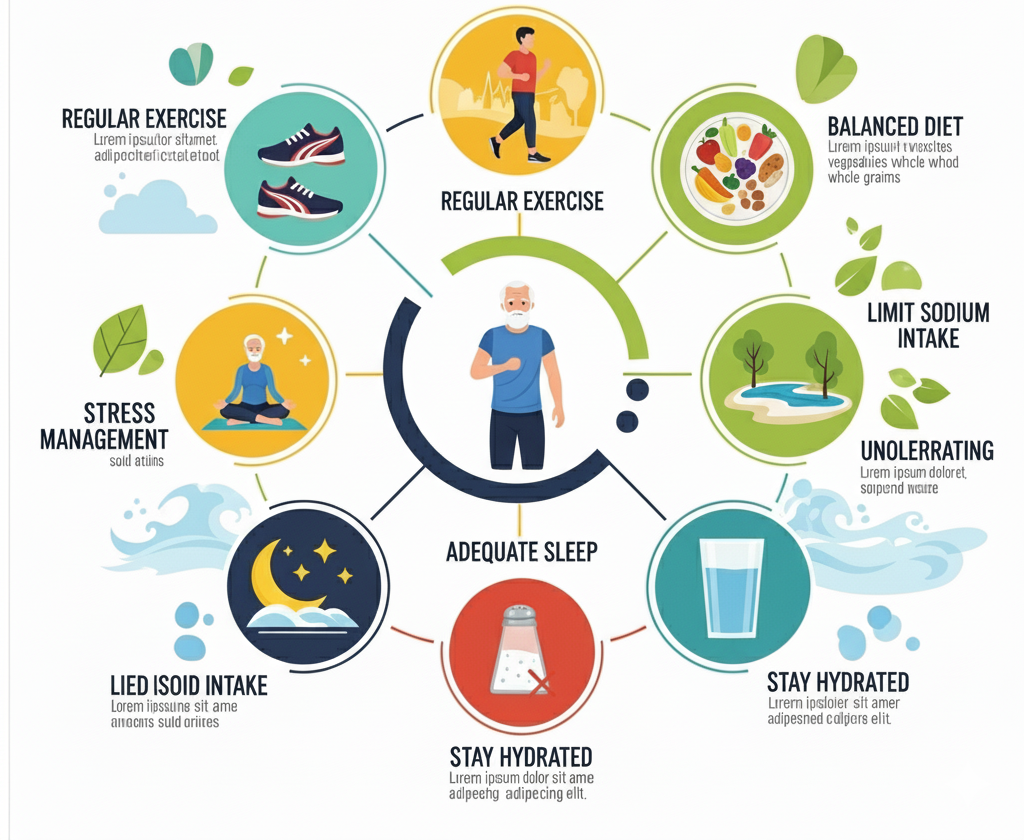1. Maintain a Balanced Diet
Eating a diet rich in fruits, vegetables, whole grains, and lean proteins provides essential nutrients like potassium, magnesium, and fiber,
all of which play a key role in controlling blood pressure and supporting overall heart health.
Focus on fresh produce, limit processed foods, and incorporate heart-healthy fats such as olive oil, avocados, and nuts into your meals.
Reducing your sodium intake is equally important, as excess salt can cause your body to retain water, leading to increased pressure on your arteries.
Aim to season foods with herbs and spices instead of salt and read nutrition labels to avoid hidden sodium in packaged foods.
In addition, stay hydrated by drinking plenty of water throughout the day and limit sugary beverages and alcohol, which can negatively affect blood pressure levels.
Planning balanced meals and snacks ensures that you get consistent nourishment while avoiding overeating, further supporting cardiovascular health.
By making these small, sustainable changes to your diet, you create a long-term foundation for a stronger, healthier heart and improved overall well-being.
